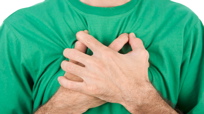News
The latest news on this change — carefully culled from the world wide web by our change agents. They do the surfing, so you don't have to!
Angina: A Subset of Heart Disease

If you have heart disease, there’s a strong chance you have angina as well. In fact, more than 6 million people in the United States have it.
Angina is the medical term for chest pain or tightness in the chest. It occurs when the heart can’t get enough oxygen from your blood. To make it even more confusing, there are three types of angina:
* Stable angina (chronic stable angina)
* Unstable angina (which usually indicates a heart attack)
* Prinzmetal’s angina (a rare type of angina caused by a coronary artery spasm)
The risk factors for angina are similar to that of heart disease. To reduce your chances of developing angina and heart disease, you should:
* Quit Smoking
* Keep a healthy blood pressure
* Keep a healthy cholesterol level
* Exercise regularly
* Practice stress management techniques
* Drink moderately
If you experience angina for more than a few minutes, it could signal that you are having a heart attack. It’s important to take angina seriously and get to the hospital immediately. Call 911—don’t attempt to drive yourself to the hospital.
Have you spoken with your doctor about angina? Have you ever experienced it or helped a friend one or loved one who did? [Mayo Clinic]





